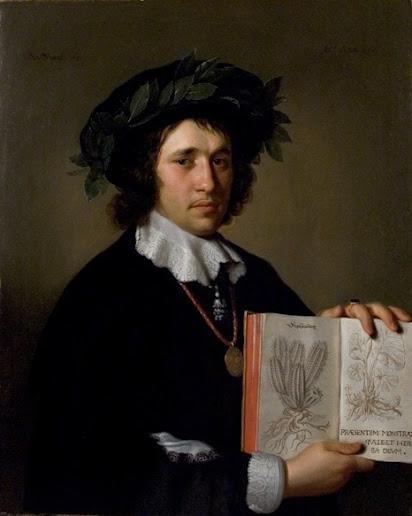The Book of Nature
The Dutch Golden Age was glorious not just for its painters but also for the inventive and original natural scientists active in The Netherlands at the time. These are the subject of Eric Jorink’s fascinating book, in which he throws a completely new light on seventeenth-century scientific culture.

Jan Swammerdam and Antonie van Leeuwenhoek examined insects, raindrops and blood under the microscope, Christiaan Huygens studied heavenly bodies through telescopes and discovered the rings of Saturn, surgeons dissected people and animals or engaged in botanical studies, and countless interested citizens, ‘amateur enthusiasts’, compiled collections of natural curiosities. In their curiosity cabinets visitors could admire the astonishing wonders of Creation, including shells, rocks and fossils, mounted fish, birds, insects and plants.
Partly influenced by such philosophers as Bacon, Galileo, Descartes and Newton, these eager researchers and collectors developed a passion for empirical knowledge. By experiment and systematic observation, thinking rationally, they developed a modern insight into the diversity of natural forms and slowly but steadily distanced themselves from knowledge handed down in the works of classical antiquity and from the authority of the Old Testament. Jorink suggests, however, that this did not involve such a radical break with the past as is generally believed.
He criticises concepts like ‘the scientific revolution’ and ‘the mechanisation of our world-view’, convincingly demonstrating that such notions are too simplistic. There was no straightforward battle between science and religion or between reason and superstition. Seventeenth-century researchers continued to see God’s hand in the world they were studying. In their view, God had revealed himself in nature as well as in Scripture; nature could be seen as a book, one that researchers had the task of reading, which meant they should analyse it with care and precision as a way of proving God’s power and goodness and revealing the inner fabric of Creation.
As well as offering a new perspective on such an important chapter of science in the early modern period, The Book of Nature represents a major contribution to contemporary debates about the relationship between science and religion, and between the ‘scientific revolution’ and the Enlightenment.
“This study dislodges a familiar picture. I consider the excellent chapter on Huygens the best thing I’ve read all year.”
“Jorink describes it abundantly, harmoniously and subtly, laying out an al ternative to the long-professed thesis of renowned historian E.J. Dijksterhuis: the mechanisation of the world picture.”
